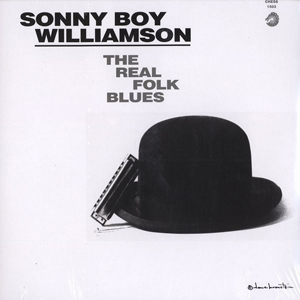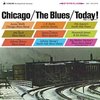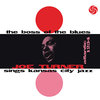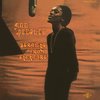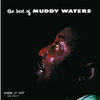SORRY - SOLD OUT
Speakers Corner / Chess LP-1503 - 180 Gram virgin Vinyl - 42600197132370
AAA 100% Analogue - Pressed at Pallas Germany
Chess LP-1503 - Limited Edition
AAA 100% Analogue This LP was Remastered using Pure Analogue Components Only from the Master Tapes through to the Cutting Head
The sound is classic Chess: the rhythm section hangs back, lurking in the reverb mud,ready to explode when necessary, with the bass line fat, heavy and prominent. It's mono,but a great expanse of space gets laid out, front to back. This is meant to be played loud and when you turn it up you won't be disappointed. The louder you play it, the bigger it becomes - Michael Fremmer Featured in eavy Rotation in the September 2005 Issue of Stereophile
Part of Chess' long line of introductory blues compilations, Sonny Boy Williamson's Real Folk Blues keeps up the high standard with another solid batch of classic Chicago blues. Mostly taken from his last years in the first half of the '60s, the 12 cuts here represent some of the best of Williamson's juke joint and dancefloor-friendly mix. Helping out this fine harp player are such Chicago royalty as Willie Dixon, Robert Lockwood Jr., Fred Below, and Otis Spann
The biography of Sonny Boy Williamson is something of an enigma, even to ardent blues fans. Indeed, he isn’t even the 'real' Williamson; a shrewd businessman simply gave singer-mouth harpist Aleck 'Rice' Miller the name after the 1948 murder of popular blues artist John Lee Williamson. Still, Miller/Williamson’s remarkable career literally bridged Robert Johnson and Eric Clapton, both his music and life embodying a free-wheeling, hard-living lifestyle that became something of a rock and blues cliché. After considerable local radio success in the Delta, Miller/Williamson ended up at Chicago’s Chess Records in the mid-1950s, where all but one of these tracks originated in the early ‘60s. But by the time Chess originally issued this ill-timed collection (belatedly compiled to cash in on a waning ‘60s folk boom), Williamson was six months dead.
Listen and it’s not hard to hear why a generation or two of blues-smitten rockers held him especially dear, be it the Allman Brothers (the original "One Way Out", with longtime partner Robert Lockwood Jr. supplying the familiar guitar licks) or Led Zeppelin (a lugubrious, boogied-up take of Willie Dixon’s "Bring It On Home"). Punctuated by harp blasts that could turn from sharply staccato to lyrically wrenching, Williamson’s leathery voice muses over his being "Too Young To Die" or "Too Old To Think" with the self-deprecating indifference that became a trademark. Though these tracks are the cream of his last years, they’re more boozy celebration than elegy.
Alec “Rice” Miller isn't the real Sonny Boy Williamson, but whatever, when the original
“One Way Out” (later covered by The Allman Brothers) screams from your mono system
(okay, your stereo system in mono) you'll know he's real whatever his name is.
Miller/Willamson (the real Sonny Boy Williamson was murdered in 1948) made it to
Chess studios at 2120 South Michigan Avenue in Chicago in the mid-fifties and recorded
these tracks for the legendary label between 1957 and 1964 backed by the cream of the
Chess roster including Otis Spann, Robert Lockwood, Jr., Little Milton, Willie Dixon
and many others. No Rolling Stones fan should be without this album (and many other
Chess classics) for it is from the loins of Chess that the band sprung, musically, and in
the early days, sonically.
With the exception of Willie Dixon's “Bring It On Home,” and “That's All I Want,” all of
the tunes are Miller/Williamson originals delivered with sly, raw vocal intensity and a
harmonica so juicy you'll be wanting to sponge off your speakers when the side ends.
The less said about this music the better. It's meant for listening, not analysis. That said,
the grooves these guys laid down are for eternity. They set the stage for the white-boy
'60's blues/rock scene from The Stones, to Eric Clapton and Cream, to The Allman
Brothers and on and on.
The sound is classic Chess: the rhythm section hangs back, lurking in the reverb mud,
ready to explode when necessary, with the bass line fat, heavy and prominent. It's mono,
but a great expanse of space gets laid out, front to back. This is meant to be played loud
and when you turn it up you won't be disappointed. The louder you play it, the bigger it becomes - Michael Fremmer
Musicians:
- Sonny Boy Williamson (vocal, harmonica)
- Otis Spann, Lafayette Leake (piano)
- Lafayette Leake, Billy Emerson (organ)
- Robert Jr. Lockwood, Eddie King Milton, Matt Murphy, Luther Tucker (guitar)
- Willie Dixon, Milton Rector (bass)
- Fred Below, Al Duncan, Odie Payne (drums)
Recording: 1957 - 1964 in Chicago
Production: Marshall Chess
Track Listing:
1. One Way Out
2. Too Young to Die
3. Trust My Baby
4. Checkin' Up on My Baby
5. Sad to Be Alone
6. Got to Move
7. Bring It on Home
8. Down Child
9. Peach Tree
10. Dissatisfied
11. That's All I Want
12. Too Old to Think
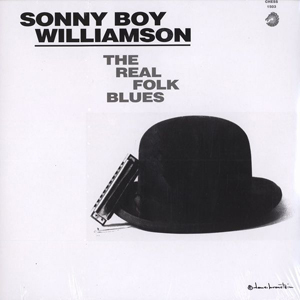
20 Years pure Analogue
Are your records completely analogue?
Yes! This we guarantee!
As a matter of principle, only analogue masters are used, and the necessary cutting delay is also analogue. All our cutting engineers use only Neumann cutting consoles, and these too are analogue. The only exception is where a recording has been made – either partly or entirely – using digital technology, but we do not have such items in our catalogue at the present time
Are your records cut from the original masters?
In our re-releases it is our aim to faithfully reproduce the original intentions of the musicians and recording engineers which, however, could not be realised at the time due to technical limitations. Faithfulness to the original is our top priority, not the interpretation of the original: there is no such thing as a “Speakers Corner Sound”. Naturally, the best results are obtained when the original master is used. Therefore we always try to locate these and use them for cutting. Should this not be possible, – because the original tape is defective or has disappeared, for example – we do accept a first-generation copy. But this remains an absolute exception for us.
Who cuts the records?
In order to obtain the most faithful reproduction of the original, we have the lacquers cut on the spot, by engineers who, on the whole, have been dealing with such tapes for many years. Some are even cut by the very same engineer who cut the original lacquers of the first release. Over the years the following engineers have been and still are working for us: Tony Hawkins, Willem Makkee, Kevin Gray, Maarten de Boer, Scott Hull, and Ray Staff, to name but a few.
At the beginning of the ‘90s, in the early days of audiophile vinyl re-releases, the reissue policy was fairly straightforward. Companies such as DCC Compact Classics, Mobile Fidelity, Classic Records and others, including of course Speakers Corner, all maintained a mutual, unwritten code of ethics: we would manufacture records sourced only from analogue tapes.
Vinyl’s newfound popularity has led many other companies to jump on the bandwagon in the hope of securing a corner of the market. Very often they are not so ethical and use every imaginable source from which to master: CDs, LPs, digital files and even MP3s.
Even some who do use an analogue tape source employ a digital delay line, a misguided ’80s and ‘90s digital technology that replaces the analogue preview head originally used to “tell” the cutter head in advance what was about to happen musically, so it could adjust the groove “pitch” (the distance between the grooves) to make room for wide dynamic swings and large low frequency excursions. Over time analogue preview heads became more rare and thus expensive.
So while the low bit rate (less resolution than a 16 bit CD) digital delay line is less expensive and easier to use than an analogue “preview head”, its use, ironically, results in lacquers cut from the low bit rate digital signal instead of from the analogue source!
Speakers Corner wishes to make clear that it produces lacquers using only original master tapes and an entirely analogue cutting system. New metal stampers used to press records are produced from that lacquer. The only exceptions are when existing metal parts are superior to new ones that might be cut, which includes our release of “Elvis is Back”, which was cut by Stan Ricker or several titles from our Philips Classics series, where were cut in the 1990s using original master tapes by Willem Makkee at the Emil Berliner Studios. In those cases we used only the original “mother” to produce new stampers.
In addition, we admit to having one digital recording in our catalogue: Alan Parsons’ “Eye in the Sky”, which was recorded digitally but mixed to analogue tape that we used to cut lacquers.
In closing, we want to insure our loyal customers that, with but a few exceptions as noted, our releases are “AAA”— analogue tape, an all analogue cutting system, and newly cut lacquers.
PALLAS
Audiophile Vinyl - Made in Germany For over 60 years the family business in the third generation of the special personal service and quality "Made by Pallas" is known worldwide. Our custom PVC formulation produces consistently high pressing quality with the lowest surface noise in the industry. Our PVC complies with 2015 European environmental standards and does not contain toxic materials such as Lead, Cadmium or Toluene. Our vinyl is both audiophile and eco-grade!
